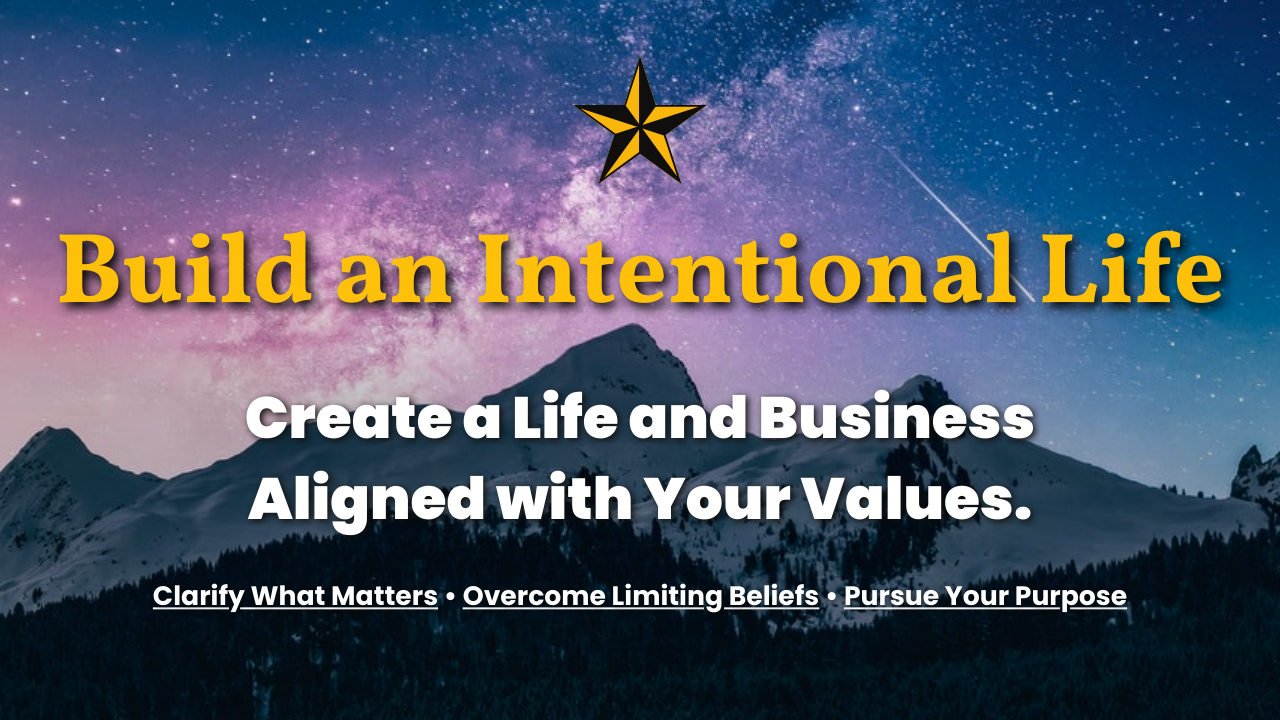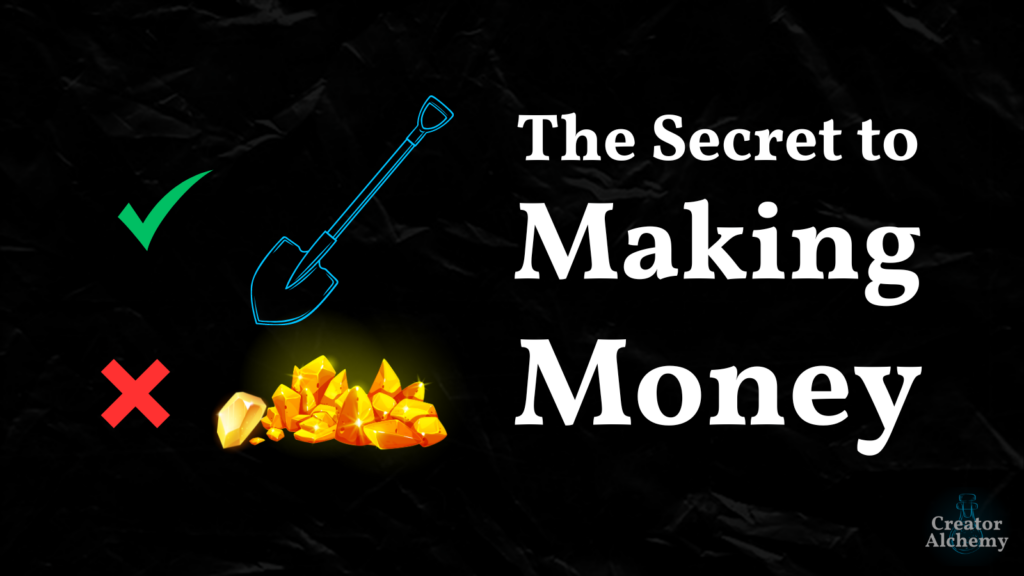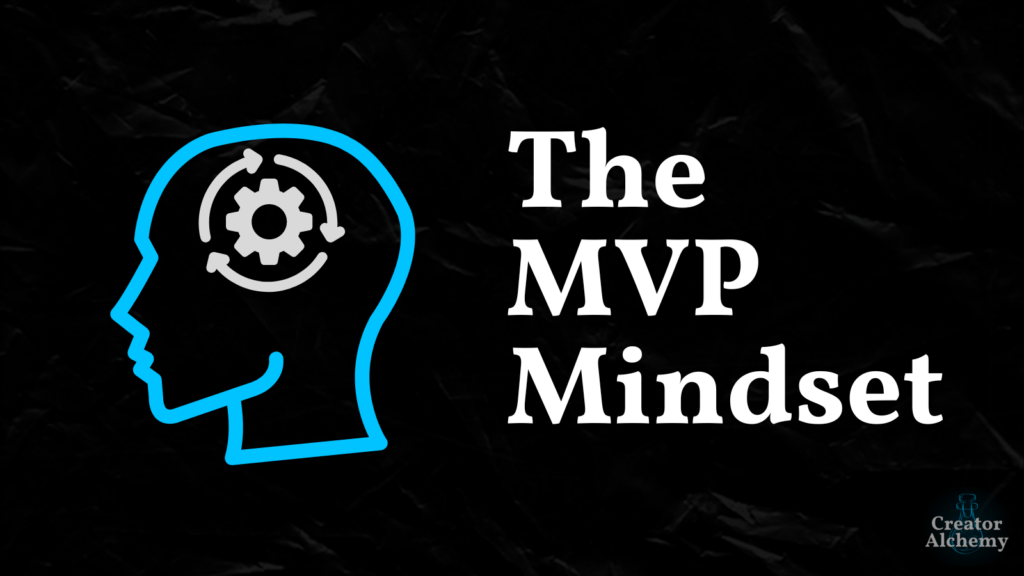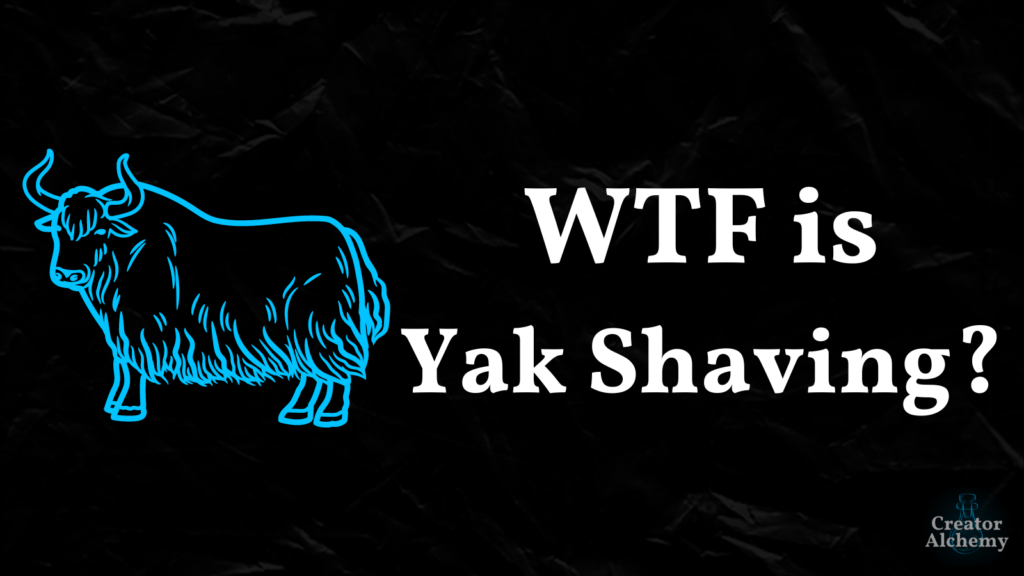“You will either step forward into growth, or you will step backward into safety.”
—Abraham Maslow
Imagine: You’ve got a high-profile job. You make good money. Your coworkers respect you. You’ve won all the accolades for doing your job well. You go home to a loving partner and happy healthy children. You fill your home with the latest gadgets and decorations and just bought a new car.
Sounds perfect, right? Almost…
Deep down you still feel like something is missing. On your commute, in the morning before your family wakes up or at night when they’re asleep, when you catch yourself staring out the window daydreaming—there’s a nagging hollowness you can’t shake.
Despite all the luxuries, you just don’t feel alive.
The good news? You’re not alone.
The bad news? You’re not alone.
Most of us don’t lead fulfilling lives. We go through the motions, we chase the carrot on the stick, then continue on with our mundane existence with the nagging suspicion we aren’t living up to our potential. We crave purpose and meaning, but rarely achieve them.
We all have wants and needs. The difference between a want and a need is that we’re driven to meet our needs, whereas wants are optional. You may prefer Topo Chico mineral water, but if you’re hot and dehydrated, you’ll accept tap water just fine; you may want the fancy stuff, but you need some kind of hydration.
When it comes to meeting our needs, Dr. Abraham Maslow claimed the majority of us stop our pursuit after we reach what he called the Esteem tier of the Hierarchy of Needs–which is one level below the top tier. This hierarchy is usually depicted as a 5-level pyramid, with the most basic (aka necessary for survival) needs at the bottom and more abstract needs toward the top. You typically have to meet the lower needs before you can move onto the higher ones.
So what are our needs and why do most of us stop before we reach the top?
•••
The Lower Tiers (Basic Needs)
These two tiers are known as your “basic needs” because they’re considered the bare minimum for people to eke out an existence. These are the foundation of the pyramid—without them, everything else crumbles away.
Physiological
This tier contains the most basic elements for you to live; in a word: homeostasis. Breathable air, drinkable water, nutritious food, restful sleep, and refuge from the elements. You have to meet these needs before you can do anything else. If you’re starving or malnourished, severely dehydrated, have hypothermia, haven’t slept in days, or can’t breathe, then you can’t function beyond immediate survival. Most, but not all, people in today’s society have these needs met to some extent.
After you’ve gotten the bare necessities out of the way, you’ll be able to move on to your next set of needs.
Safety
Just like you need homeostasis, aka stability, for your body, you also need stability in your day to day life. Without safety and security, it’s difficult to anticipate how to navigate the world. If we don’t know what to expect, anxiety can paralyze us.
A lot of us get stuck at this level. Like getting stuck in a ditch, many people, especially those from a low socioeconomic background, struggle to dig themselves out of this pit.
If you live paycheck to paycheck, don’t have job security, have to balance which bills you’ll pay this week and which ones you’ll have to pay late fees on next month, have to choose between paying for your medication or food, willfully try to ignore that weird noise your car’s been making because you can’t afford to fix it anyway, or have been couch-surfing because you can’t afford the deposit and utilities for your own place—then this tier is where you’re at in life.
Hard to date when you can’t afford dinner and a movie. Hard to find a career when you’re already working 60 hours between 3 jobs that don’t offer benefits, can’t afford nice clothes for a job interview, or don’t have the time or money to take some college classes. Hard to save money to build a better life when you’re swimming in debt.
There’s also the matter of physical safety. If you view the world around you as a dangerous place, it’s much more difficult for you to build healthy relationships or take risks.
In order to take risks in our personal or professional lives, we have to feel some sense of safety. It’s easier to risk taking a new job or starting a family if you have financial security. It’s easier to set boundaries with your partner when you don’t fear being assaulted. It’s easier to go jogging or walk the dog in your neighborhood if you aren’t worried about getting mugged or shot as soon as you walk out the door.
But hey, let’s say you’ve achieved financial security and relative physical safety, now what?
•••
The Middle Tiers (Psychological Needs)
These next two tiers are also known as your “psychological needs” because they involve your emotions and forming healthy connections with others.
Love and Belonging
Humans are social creatures, so we’re driven to form bonds with others and create groups. We need to feel a sense of belonging and acceptance by our peers. This can include a small group of friends, religious group, co-workers, fraternity or sorority, a partner, our family, or an online community.
We need to love and be loved. This is why ostracism, aka exile, has been used as punishment throughout human history—it literally hurts us to feel abandoned.
If we’re abandoned, neglected, or shunned by others, it can lead to loneliness, anxiety, depression, and addiction.
These experiences also stunt our ability to build a positive self-image, or build healthy relationships in the future. We begin to think, If others don’t love me, maybe it’s because I’m unlovable. If that’s our baseline assumption, it becomes a lens through which we see the rest of the world. This lens colors our perceptions and leads to pessimism and insecurity.
But if we do feel a sense of love and belonging with others, we’re driven to satisfy the next level of our psychological needs.
Esteem
This tier can be summed up with one word: respect. Respect from others and respect for ourselves.
Respect from others includes gaining recognition for our accomplishments and having prestige. Being employee of the month, getting a raise, even becoming the CEO are all forms of being respected and garnering attention from others.
Respect for ourselves, aka self-esteem, is different. It’s possible to have people fawn over you but still hate yourself. Deep-seated fears of abandonment, self-loathing, feelings of inadequacy—these cripple our ability to develop healthy self-esteem. We meet this need by developing a sense of competence and confidence in our abilities, who we are, and what we believe we’re capable of achieving.
This is the tier most of us stop at. We have safety, security, a good job, people like us, and we like ourselves. What more could we want or need?
•••
The Highest Tier (Self-Fulfillment Needs)
Self-Actualization
You could be the CEO of a huge company and make millions of dollars, but if your true passion is digging wells for people in the Congo, you’re not self-actualized. That’s actually what MMA veteran Justin “The Pygmy” Wren does.
Here is a TEDx Talk Justin gave where he ends by asking the audience, “What would you attempt to do if you knew you could not fail?” Answering this question can give you a starting point to figure out what self-actualization looks like for you.
Self-actualization is living up to our full potential, embracing our passions, and pursuing activities that are deeply fulfilling.
As Maslow himself put it:
“A musician must make music, an artist must paint, a poet must write, if he is to be ultimately at peace with himself. What a man can be, he must be. This tendency might be phrased as the desire to become more and more what one is, to become everything that one is capable of becoming.”
This is what you’d do even if you didn’t get paid for it, because it’s so intrinsically rewarding and based on what you value most–it’s your calling.
Put another way, what are you willing to suffer for? As Mark Manson puts it, “What’s your favorite flavor of shit sandwich?” In this article, Mark goes on to say:
“Nothing is pleasurable or uplifting all of the time. So, the question becomes: what struggle or sacrifice are you willing to tolerate?”
The Stoics refer to this concept as eudaimonia, which loosely translates to “fulfillment.” It goes beyond the concept of superficial happiness—hedonistic pleasures like sex, drugs, material possessions, binging tv shows, or bungie jumping.
Eudaimonia is about doing things that, even if they don’t always make you happy in the moment, give your life direction, purpose, and meaning.
Justin Wren has contracted malaria, multiple times, in his pursuit to give more people in the Congo access to clean drinking water and help them buy back their land and freedom from their oppressors.
Every professional athlete loses. Every writer struggles with their craft. Every musician has faced criticism. Every physician has lost a patient. Every comedian has had a joke fall flat.
Despite individual moments not always being “fun” on a surface level, the journey, the pursuit of what makes you come alive—that is what self-actualization looks like.
So who wouldn’t want to live a more fulfilling life? What stops us from self-actualization?
•••
What Stops Us from Reaching Our Potential?
Ignorance
Part of what holds people back is they don’t know self-actualization is even an option. Most people have been raised with a low ceiling of expectations for what they can become. They legitimately aren’t aware of the potential they have or that they could pursue a more fulfilling life.
You see this in people who have a family legacy in certain industries: the last four or five generations of their family worked in the coal mines so they work there too, everyone in their family are physicians or lawyers so they feel obligated to do the same thing and have never entertained the idea of doing something different. “It’s just what we do in our family,” is a common phrase you hear people like this say when you ask them why they picked their job.
Even without pressure from family and friends, a lot of people don’t know what a purpose-driven life looks like.
Years ago, I asked some of my Intro Psychology students to write about what would keep them from becoming self-actualized. One student wrote, “I have yet to discover who I am as a person and where I want to go in life.”
Do you know who you are as a person or where you want to go in life? Ignorance, in this case, isn’t bliss.
Complacency
Growth is difficult and inconvenient. Pursuing purpose and fulfillment isn’t fun all the time, it can be lonely, and it takes consistent effort that can feel like you’re stumbling around in the darkness without any clear indication what you’re doing will work out.
Another student wrote, “Becoming self-actualized would be next to impossible for the average individual and would require a lot of self-discipline, personal honesty, and determination to achieve.”
Are you willing to put in the work to cultivate self-discipline? Is a life of purpose and fulfillment important enough to you to embrace inconvenience to achieve it?
Check out, “Why Wanting Isn’t Enough” for a deeper dive into this concept.
Fear
This is the biggest obstacle for most people. Fear paralyzes us. It tells us to stay in our comfort zone because if we venture into the unknown, there be dragons. Most of us are afraid of the unknown and failure—pursuing self-actualization triggers both of these fears.
Most of my students said fear was their biggest obstacle to self-actualization. Here are a few responses:
“In order to achieve my full potential, I need to first become comfortable with myself. I believe my fears and current anxieties are the biggest obstacles I deal with.”
“I believe that it is very hard for individuals to become self-actualized in this day and time. Information spreads more rapidly now that we have the internet, television, and social media. Individuals are not their true self because they are embarrassed of what reputation they might receive, who might see them, or what other people might say about them. Why would someone want to try to become self-actualized if the only thing coming from it is a new Facebook post about how silly you are for doing something that you enjoy? The fact that individuals cannot ignore other people’s opinions is why individuals are not self-actualized.”
“That is probably a reason as to why I am not self-actualized yet. I care too much about what other people think of me.”
“I feel that for me to overcome my barriers and become fully self-actualized, I need to open up to myself and be honest.”
Whose opinion do you value more: your own or other people’s? Are you willing to put in the work—to be honest with yourself and your needs—to find a purpose powerful enough to outweigh your fears? What do you really give a fuck about? It’s ok to feel fear. But we grow by examining our fears and insecurities, not by letting them box us into a smaller existence and less fulfilling life.
“I must not fear. Fear is the mind-killer. Fear is the little-death that brings total obliteration. I will face my fear. I will permit it to pass over me and through me. And when it has gone past, I will turn the inner eye to see its path. Where the fear has gone there will be nothing. Only I will remain.”
—Frank Herbert, Dune
•••
What To Do About It
First off, there’s nothing inherently wrong with not being self-actualized. If you prefer to take the safe route and comfortably park yourself at the Esteem tier, then do it. No one is forcing you to live a more meaningful life. But if you choose this route, know that you’ll always feel like something is missing from your life.
If, however, you refuse to live a life without purpose or meaning or can’t stand the idea of being another cog in the wheel of a job where you feel like Bill Murray in Groundhog Day, there’s one concept that can help you put things into perspective and overcome the obstacles in your way.
Memento Mori. Remember you will die. Too many people delay living their version of a good life until retirement. They work a miserable or unfulfilling job for 40+ years hoping to retire around 65.
Then, they say to themselves, I’ll start living how I want. Maybe they squeeze in a bit of enjoyment in the evenings, weekends, and the occasional week vacation, but that’s it for 40+ working years.
That logic assumes you, and the people you care about, will be around and healthy enough to enjoy the last 15ish years of your life (assuming you live to 80).
You’re seriously willing to live your entire life, until the last 15 years, doing shit that doesn’t rejuvenate your soul or resonate with you on a deep level?
If you work 40 hours a week for 50 weeks a year (allowing 2 weeks’ vacation) for 40 years, that equals 80,000 hours of your life spent at a job.
Then you retire.
Then health and age-related issues catch up with you.
Then you die.
Do you want those 80,000 hours of your life spent doing something fulfilling or something that, although it’s safe and predictable, slowly eats away at your soul?
Or would you rather spend your entire life pursuing something that gives you energy and allows you to share a piece of yourself with the world, making you and the world better for it?
Because that will require you to step into the arena. It’ll require you to overcome Imposter Syndrome. And it’ll require you to expand your Life Horizon.
Justin Wren spends his life training MMA and helping people in the Congo free themselves from modern slavery and gain independence and self-sufficiency as a people.
Ryan Holiday, co-author of The Daily Stoic, turned his passion for studying and practicing Stoic philosophy into a writing and speaking career.
Tom Bilyeu co-founded Quest Nutrition because he was passionate about helping end the obesity epidemic. Then he founded Impact Theory, a media company with the goal to “Pull people out of the Matrix, at scale, by giving them an empowering mindset.” Their tagline is: “Develop your passion, pursue your purpose and make your mark on the world.” Tom’s self-actualization is to empower a generation of people to self-actualize—that’s meta.
Those 40+ years of your life will go by one way or the other, regardless of how you spend them. What are you willing to do to spend them meaningfully?
“The struggle is guaranteed. Success is not.”
—Tom Bilyeu
•••
The Takeaway
You get one life, then you die. How do you want to spend it—working a soul-sucking job and collecting fancy tchotchkes or developing a life around your passions that gives you a sense of fulfillment?
Fear will try to stand in your way and paralyze you. Are you willing to put in the work to develop a passion powerful enough to overcome your fears? If you’re struggling to find a passion, Mark Manson has some advice:
“Find a problem you care about and start solving it. Obviously, you’re not going to fix the world’s problems by yourself. But you can contribute and make a difference. And that feeling of making a difference is ultimately what’s most important for your own happiness and fulfillment. And importance equals purpose.”
Knowing and doing are two different things. Now that you know what self-actualization is, how to pursue it, and the consequences for letting fear paralyze you, what will you do?
•••
P.S.
If you want a proven system to help you clarify the life you want to live, overcome what’s standing in your way, and develop step-by-step strategies to make it a reality, check out Build an Intentional Life.

Think of it like private coaching, but self-paced—it’s all the best strategies I’ve used with my clients to help them reach their potential and build a life and business aligned with what matters most to them, but in a convenient self-paced course.
It even includes a bonus audio-only version, so you can listen to it on your favorite podcast player wherever you go.
So check it out today and let me know how it helps you build a life and business aligned with your values.



